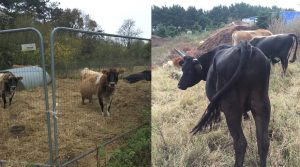Recent RAC Appeal Success

Louise Morcom has recently acted for three separate councils providing expert agricultural advice at planning appeals, all of which were successful. All three applications were refused by the relevant Local Planning Authority (LPA) based on there being no need for a permanent on-site rural worker. The decisions subsequently went to appeal where the Inspectors upheld the LPA decisions.
The first hearing (APP/V3120/C/19/3219969) was complex with the appellant making the case against an enforcement notice issued by the LPA some two years prior. One of the main issues dealt with at the hearing was whether the business generated an essential need for a rural worker to live on site. The Inspector determined this need primarily on whether the business plan produced by the appellant was economically sustainable and viable for the foreseeable future.
As part of the supporting documents submitted to the Planning Inspectorate for consideration, Louise provided a detailed analysis of the appellant’s proposed business plan, centred around the production of raw milk and dairy products for a small-scale Community Supported Agriculture (CSA) enterprise. Key findings of this analysis included the potential health risks associated with the production and sale of raw milk and dairy products (with no steps taken to apply for the Environmental Health or Food Standards Agency approval required), a lack of market research and the appellant’s very limited commercial experience and limited success implementing previous business plans on the site.
The Inspector agreed with the assessment made by Louise and concluded ‘I do not find the business plan economically sustainable or viable for the foreseeable future and accordingly there is no essential need for a dwelling on the site to accommodate a rural worker.’
The second hearing (APP/G2815/W/20/3258402) also considered whether the need for an essential rural worker to live permanently at the site had been satisfactorily demonstrated. Louise had previously assessed the planning application being appealed and considered that the holding was operating at a very low level and there was not a requirement for a permanent on-site worker, therefore the requirements of the LPA policy requiring that there be a ‘clearly established functional need’ were not met.
The appellant’s professional representation strongly disagreed with Louise’s approach to the application of the policy in assessing the proposal, stating that it reflected an approach set out in withdrawn national policy. In the decision, the Inspector agreed with the approach taken by Louise, setting out: ‘Moreover, Policy 13’s functional test sets out that a clearly established functional need for the proposed development should be demonstrated. To my mind, a functional need cannot be clearly established based upon future plans to significantly diversify an existing enterprise that does not currently generate an essential need for a full-time residential presence.’
The third appeal (APP/C7160/W/19/3242996) also dealt with the need for a permanent rural workers’ dwelling and equine stud facilities on a large mixed arable and livestock farm in Hampshire. The appellants had considerable professional representation who had provided a number of detailed reports to support their appeal. Louise provided a comprehensive analysis and supporting statement dealing with the various points raised by the appellants to the Planning Inspectorate as part of the LPA’s document submission.
The main points addressed were whether the needs of the equine stud could continue to be met by the appellant’s existing farmhouse and redevelopment of existing equestrian facilities and whether there was a need for a permanent rural worker to live on site to meet the needs of a sheep enterprise, with seasonal lambing taking place at the appeal site some three miles from the appellant’s home.
The hearing was a long day with strong representations made by the appellant’s professional representation. However, ultimately the Inspector agreed with Louise’s assessment concluding: ‘It has not been demonstrated that there is an essential functional need for permanent living accommodation for a rural worker in the countryside for sheep faring (and there is therefore no aggregate need combined with Jarosa Stud), nor why an essential functional need for Jarosa Stud is not met by an existing dwelling.’

